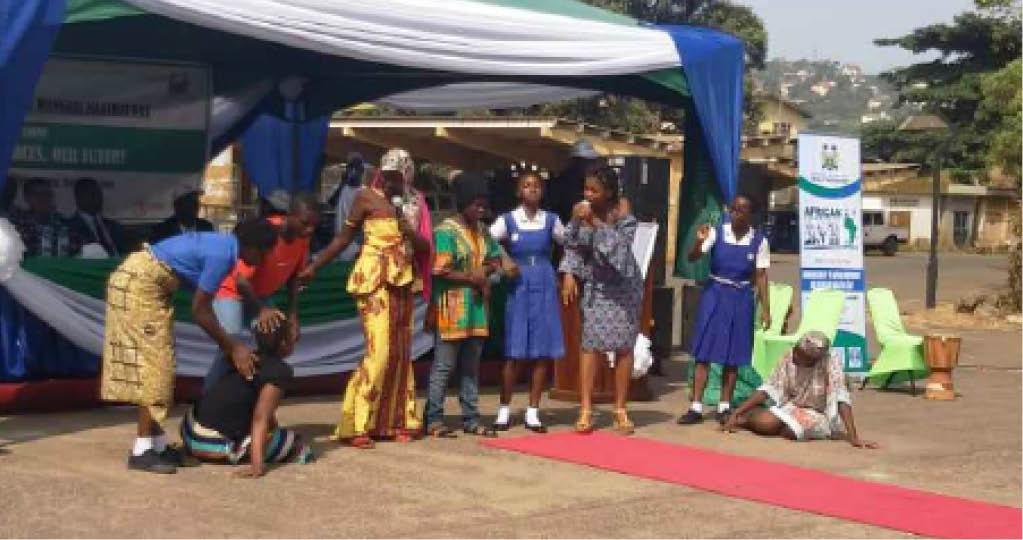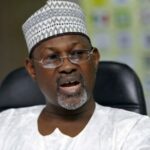“The generation that destroys the environment is not the generation that pays the price; that is the problem,” said Prof. Wangari Maathai, a political activist, passionate lover of women and environmentalist who distinguished herself in the management and conservation of the environment.
Prof. Maathai was a Nobel Peace Prize Laureate and founder of the Green Belt Movement that resulted in planting over 51 million trees in Kenya.
She inspired sustainable development initiatives and African women empowerment across the world through her role as a Goodwill Ambassador of UNEP and patron in an initiative tagged “Billion Tree Campaign” that inspired thousands of people across the world to plant trees for the benefit of their communities.
Despite her effort, women’s innovative skills on environmental issues are often neglected and they are often not included in all decision-making levels of environmental management and are often seen as “door mats” and not encouraged to voice their opinions or included in collaboration and networking programmes.
Although late, Prof. Maathai’s legacy is celebrated across Africa and the world. It is on this premise that the African Environment Day (AED) was birthed by the African Union (AU) Commission (AUC).
The day is marked every March 3, as African Environment and Wangari Maathai Day to commemorate her work in the environmental field and to champion the cause of women as assets to be harnessed in the interest of better natural resources and environmental management.
“You cannot protect the environment unless you empower people, you inform and help them understand that these resources are their own; that they must protect them.” This is one of the notable quotes from Prof. Maathai who was a passionate lover of women and the environment.
The 2020 AED, which was marked in Freetown, Sierra Leone, with the theme: “Our Resources, Our Future”, saw hundreds of environmentalists, stakeholders, international organisations and women groups partnering AU to raise the challenges women face in the management of natural resources and proffer solutions that will empower them to unleash their potentials.
The Head of UNEP Liaison Office at AUC, Samba Harouna Thiam, said the theme was both pertinent and timely for the continent as it was truly endowed with resources.
Thiam noted that the continent had 20 per cent of global land cover, 65 per cent of the world’s arable land, 17 per cent of global forest cover, second largest rainforest with Congo Basin, 30 per cent of all global mineral reserves, 10 per cent of global oil reserves and abundant renewable energy sources: wind, solar or hydro.
Despite these resources, Thiam said the continent still faced economic and social challenges, including desertification, inadequate electricity, dependence on biomass for cooking which led to pollution and losing of most tropical primary rainforest.
He said, “This calls for courageous and bold policy reforms to be taken at continental, regional and national levels to ensure that no one is left behind.”
He further said gender equality which was at the heart of UN’s Sustainable Goal Priorities needed to be adequately reflected in climate change and environmental policies, strategies and programmes and be effectively implemented.
He added that, “Land tenure reforms should enhance women’s access and control over land as in most societies women typically have fewer land ownership rights than men.”
Speaking on the situation on women at the event, Ms. Lovetta Juana of the Environment Protection Agency (EPA), said women were still absent from the climate change and natural resource-related decision-making process at all levels.
Ms. Juana said, “Access to new technology, information and training related to natural resource management remains highly gendered, with most of the related initiatives targeted to men.”
The AU Commissioner for Rural Economy and Agriculture, Amb. Josefa Sacko, noted that access to land and natural resources was essential to social and economic development, providing housing, food and livelihood security.
Amb. Sacko said, “In Africa, women have insecure land tenure security situations which undermine their capacities to increase productivity, thus limiting their economic empowerment.”
She further said African women should be strengthened to access land and natural resources because they produced more than 60 per cent of the food in Africa, yet they owned only about 20 per cent of the land.
Women make up almost 50 per cent of the agricultural labour force in Sub-Saharan Africa, an increase from about 45 per cent in 1980.
“Women are more dependent on natural resources for meeting family needs for both food and medicine. The gender gap in economic earning and productivity is very acute in Africa and needs to be addressed as a matter of urgency,” she said.
She, however, called for the improvement of women’s position in the customary system to help them negotiate for better conditions in customary land tenure systems.
While advocating that laws should be modified to extend legal protection to more land use rights to cover women married through the traditional and religious ways and not just civil marriage, she said there was need to also improve women’s ability to access statutory protection.
She said more important was empowerment, support to women to be drivers of change and mainstreaming gender issues in programming and planning.
Also, a former Vice President of the Gambia and Chairperson of the occasion, Mrs. Fatoumata Tambanjang, said women usually had constraints culturally, socially and technologically, but that they could transform lives and policies Mrs. Tambanjang said women were the most valued resources that Africa had, and that “we need to take a look at the framework and hold government accountable in implementing some of the instruments that have been adopted on the environment.
“We need to ensure that the government and all the responsible partners take responsibility in implementing all the principles by contextualising them into the national development agenda.”
She further said, “We should be able to champion the translation of all these instruments into the local languages because the majority of our people are in the rural areas; sometimes they don’t understand those instruments that are adopted by the government and thus cannot hold them accountable.
“We need education, awareness creation to begin to engage those who matter and those who matter are the actors who are dealing every day with the environmental considerations.”
The Sierra Leonean Minister of Environment, Prof. Foday Moriba Jaward, said Sierra Leone ranked the third most vulnerable country in environmental degradation after Bangladesh and Guinea, and that every sector was affected by climate change which if not properly handled would undermine its development.
Prof Jaward said, “Africa has come to terms that they cannot continue with business as usual as women play a key role in the management of natural resources and yet there is a gender gap in the productivity and involvement in agricultural activities.
“As a country, we welcome the resolution taken by the AUC to function in the promotion of gender equality. The commemoration offers an opportunity for stock taking on the way environment is handled and thus creates a platform for Africa to increase positive attitude, enhance sustainable forest management for empowerment, increase sensitisation to women’s access to land and management.
The AUC Senior Policy Officer, Almami Dampha, said women participation and leadership were essential to every aspect of conflict prevention, peace building and sustainable natural resource management.
Dampha said, “Women’s experiences and contributions to an ecologically sound environment must, therefore, be central to the agenda for the 21st Century. Sustainable development and realising the goals of African Agenda 2063 will remain elusive unless women’s contribution to environmental management is recognised and supported.”
Meanwhile, the Coordinator of National Organisation of Women (NOW), Dr. Nana Pratt, said there was need to present a balance in terms of income generation and protection of natural resources for the future.
Dr. Pratt said, “Our people are always looking for quick fixes and waiting for the government to give them, why can’t you give yourself by setting up something.
She, therefore, called for reflection on what had been done, saying “we have had many opportunities and thrown away and that will not help preserve the legacies set by Wangari.”

 Join Daily Trust WhatsApp Community For Quick Access To News and Happenings Around You.
Join Daily Trust WhatsApp Community For Quick Access To News and Happenings Around You.


